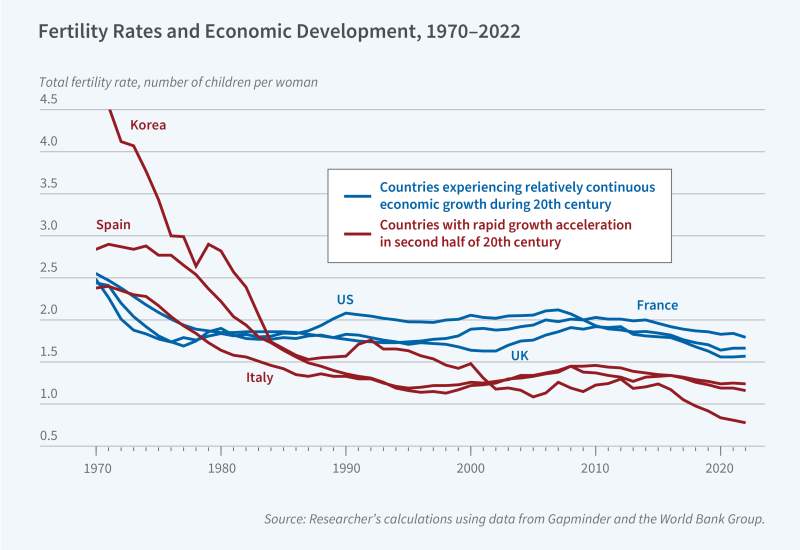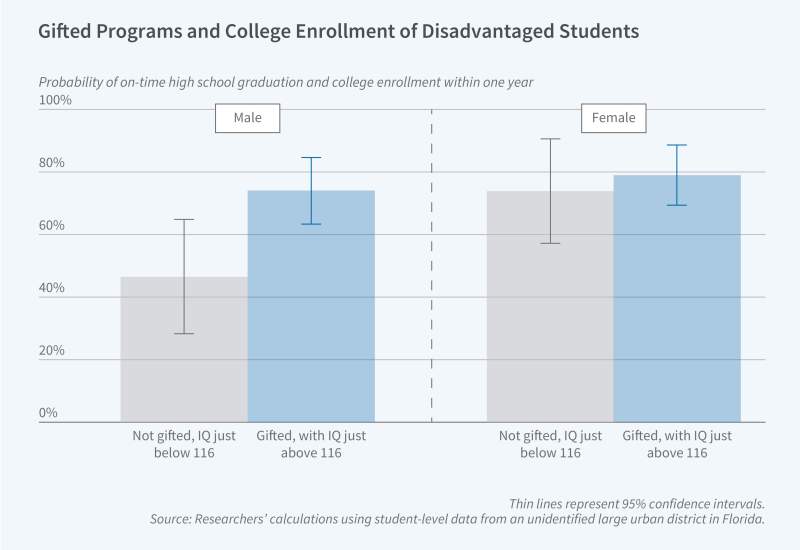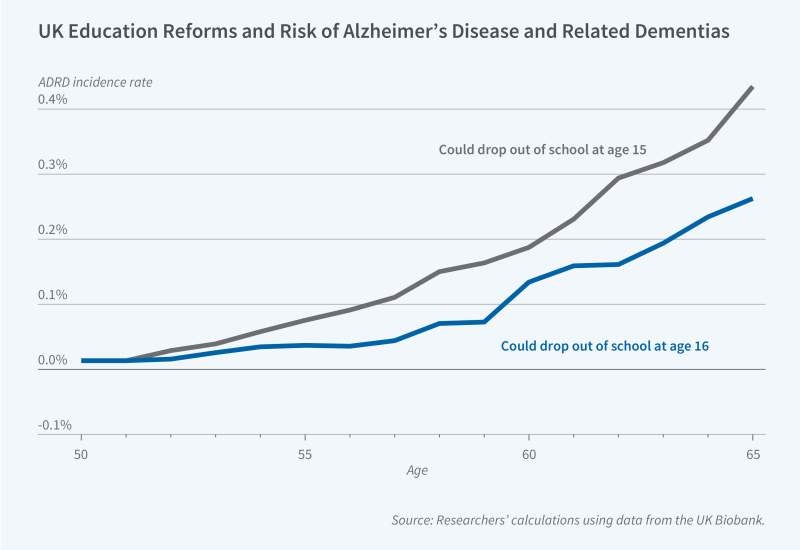Research
The NBER conducts and disseminates independent, cutting-edge, non-partisan research that advances economic knowledge and informs policy makers and the business community.
New NBER Papers
-
Working Paper
We argue that college students’ field-of-study choices significantly influence how economies respond to labor market...
-
Working Paper
Amid rising global interest in state interventions, this paper examines how China’s infrastructure investments—a key...
-
Working Paper
We study the short-run effects of import tariffs on GDP and the trade balance in an open-economy New Keynesian model...
-
Working Paper
Recent policy proposals seek to regulate out-of-network hospital prices. We study how such regulation affects...
-
Working Paper
Governments and firms often employ soft spending limits to restrict overspending while still allowing exceptions on a...
Keep Track of New NBER Working Papers with New This Week
The Digest
The Digest is a free monthly publication featuring non-technical summaries of research on topics of broad public interest.

Article
When nations experience rapid economic modernization, traditional family values can clash with new social realities and result in sharply declining birth rates. This insight helps to explain why some developed countries have much lower current fertility rates than others, despite having had higher rates in the recent past.In Babies and the Macroeconomy (NBER Working Paper 33311), Claudia Goldin examines fertility patterns across 12 developed nations. She divides the...

Article
Girls are more likely to go to college than boys. One explanation for this pattern is that boys have weaker noncognitive skills, such as self-discipline, than girls. In Can Gifted Education Help Higher-Ability Boys from Disadvantaged Backgrounds? (NBER Working Paper 33282), David Card, Eric Chyn, and Laura Giuliano examine the impact of gifted education on boys from low-income or non-English-speaking families, focusing on noncognitive skill development and college enrollment...
The Reporter
The Reporter is a free quarterly publication featuring program updates, affiliates writing about their research, and news about the NBER.

Article
Author(s):
The NBER Corporate Finance Program has been a leading research forum in the field since it was established in 1991. Corporate finance questions intersect with many areas of finance and economics, including macrofinance, asset pricing, financial intermediation, and organizational economics. This breadth of topics is reflected in the work presented at the Corporate Finance program meetings. The importance of the field has been widely recognized in academia and is evidenced by...

Article
Author(s):
Over sixty years ago in 1964, the launch of the War on Poverty represented one of the largest and most comprehensive attempts to improve wellbeing in US history. President Lyndon Johnson’s administration invested billions of dollars in American education, health, employment, and community development.1 Many of these programs targeted the roots of poverty, seeking to provide a “hand up, not a handout.” Johnson aimed “not only to relieve the symptom of poverty, but to cure it...
The Bulletin on Retirement & Disability
The Bulletin on Retirement and Disability summarizes NBER research on retirement and disability. A quarterly, it is distributed digitally and is free.

Article
In Health Inequality and Economic Disparities by Race, Ethnicity, and Gender (NBER Working Paper 32971 an earlier version, NBER RDRC Paper NB23-11), Nicolò Russo, Rory McGee, Mariacristina De Nardi, Margherita Borella, and Ross Abram use data from the Health and Retirement Study over the period 1996–2018 to evaluate measures of health inequality in middle age and the consequences of such health disparities. At age 55, Black men and women...

Article
In How Do Economic Conditions Affect Earnings and Return to Disability Programs for Beneficiaries Whose Benefits Were Terminated? (NBER RDRC Paper NB22-03), Jeffrey Hemmeter, Kathleen Mullen, and Stephanie Rennane find that individuals whose benefits end due to medical improvement during an economic downturn earn less in the short run and are more likely to reapply for benefits within five years than those whose benefits end during stronger economic...
The Bulletin on Health
The Bulletin on Health summarizes recent NBER Working Papers pertaining to health topics. It is distributed digitally three times a year and is free.

Article
Alzheimer's Disease and Related Dementias (ADRD) represent a growing global health crisis, with cases projected to reach 131.5 million by 2050. The economic burden is substantial: In 2020, ADRD cost the United States $305 billion, with forecasts suggesting a threefold increase over the next 35 years in the absence of effective interventions. While previous research has associated lower educational attainment with increased ADRD risk, establishing causality has proved...

Article
Naloxone, which reverses the effects of an opioid overdose, is a critical tool for responding to the opioid crisis. However, prior to the 2010s, two barriers hindered its widespread distribution and use in the United States. One was legal access: Naloxone required a prescription from a healthcare provider. Another was that naloxone was administered by injection and therefore required training for proper use. In 2010, Illinois became the first state to adopt a dispensing...
The Bulletin on Entrepreneurship
Introducing recent NBER entrepreneurship research and the scholars who conduct it

Article
Sociologists have argued that “third places” like cafés, which provide opportunities for individuals to socialize and exchange ideas outside of home and work, improve neighborhood life. But what about the relationship between such places and economic activity? In Third Places and Neighborhood Entrepreneurship: Evidence from Starbucks Cafés (NBER Working Paper 32604), researchers Jinkyong Choi, Jorge Guzman, and Mario L. Small use data on US business...

Article
In Stock Market Wealth and Entrepreneurship (NBER Working Paper 32643), Gabriel Chodorow-Reich, Plamen T. Nenov, Vitor Santos, and Alp Simsek evaluate the relationship between the performance of a household’s stock market portfolio and the likelihood that someone in that household launches an entrepreneurial venture. They analyze administrative data from Norway’s shareholder register and compute the holdings of every Norwegian household in all...
Explore NBER-Based Research Projects
Learn about NBER Affiliated Scholars